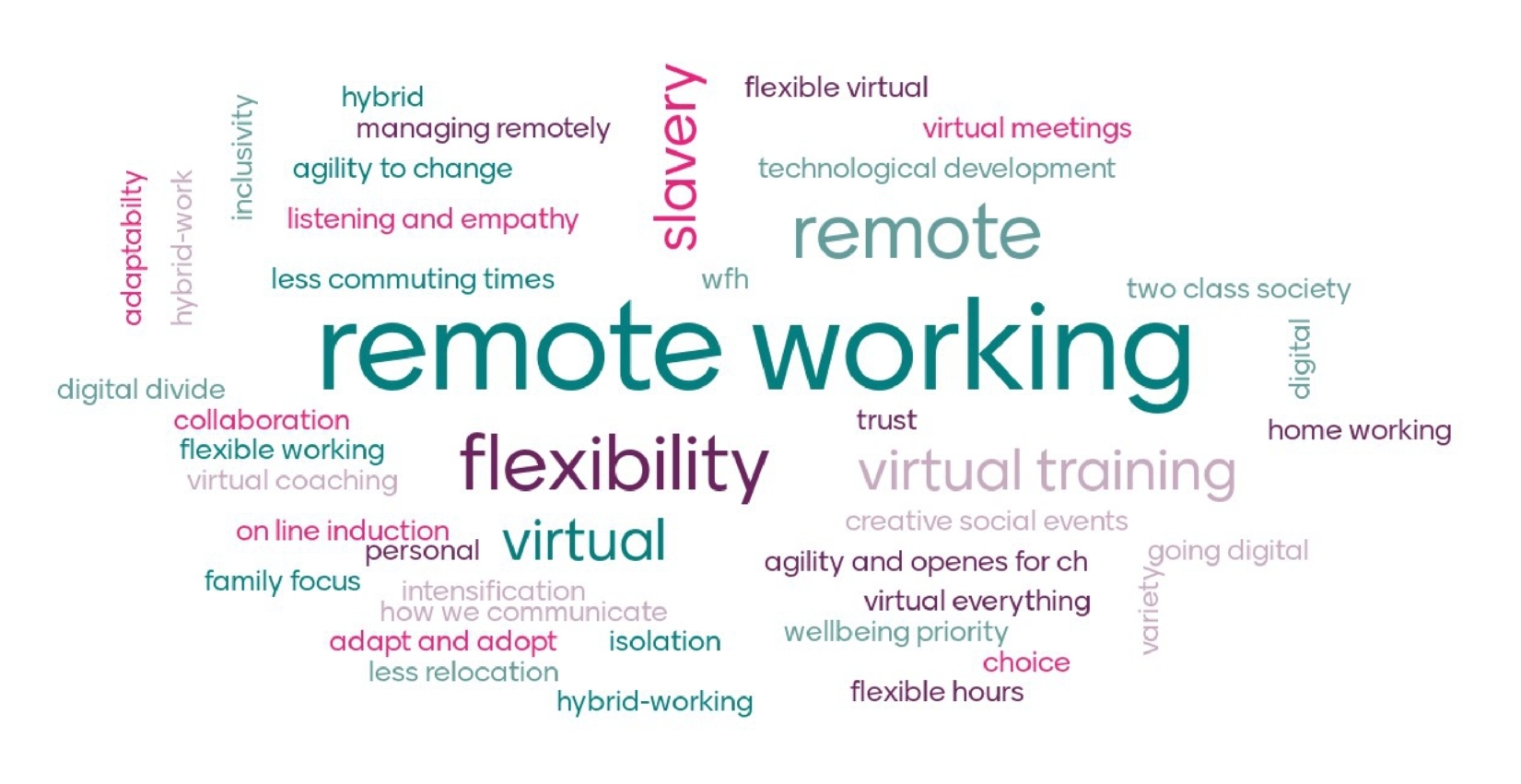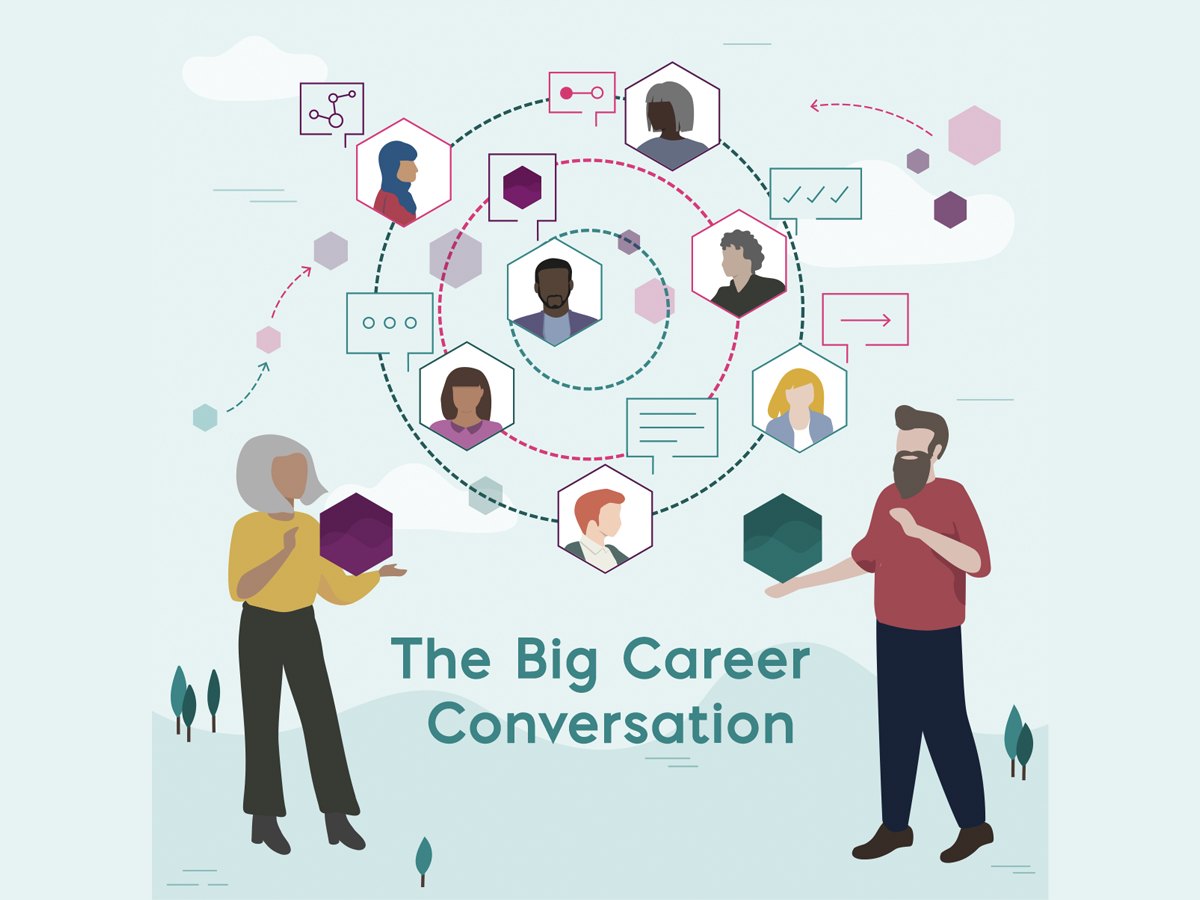In the opening day of The Big Career Conversation, Jonathan Winter talked with a panel of experts and HR leaders. They dug deep into the changes taking place and proposed new ways to lead and manage organisations for the future world of work.
Climbing into the car to visit friends outside Oxford at the weekend, we were faced with a stationery line of vehicles heading into the city: gridlock. “Is this it? Back to traffic like this? Has nothing changed as a result of the pandemic?”
A few days earlier, I posed a similar question to thirty HR leaders and experts at a recent roundtable event hosted by The Career Innovation Company. “What changes will endure? And what does it mean for us?”
Work will never be the same again
Few of the participants thought the world of work would return to its previous state.
“Workplace trends have been advanced by about five years. Everything we thought might happen has already happened.”
commented Ross Smith, an expert in automation and worker displacement.
Together we wondered about the new rules of work and careers:
- Will we return to the office? And what does ‘hybrid working’ really mean?
- Without offices how will we have a sense of place and a sense of identity in organisations and teams?
- Have young people’s careers been irreparably damaged? How can they make themselves visible?
- Will the empathy and care of so many leaders during COVID still be evident and valued when the crisis is over?
- If more of us work remotely, how well can we really work in teams to innovate?
- How will the role of HR be different in future?
Word-cloud responses to the question: ‘What changes are likely to endure?’

“The death of the office is premature – but the meaning we ascribe to the workplace will change.”
commented Professor Wilson Wong, Head of Insights and Futures at CIPD, alongside academic and advisory roles, particularly in human capital metrics.
“How we use data is changing too – we’ll use it to monitor staff – their wellbeing as well as performance. It’s a double-edged sword.”
Ross Smith, logging in from Microsoft in Seattle where he manages teams of younger workers, cautioned people not to speculate based on their own experience.
“It’s the next generation – growing up on multi-player online games – who will define their future world of work, not us”
From his experience so far, Smith was optimistic about innovation.
“Now you can tap into a global community, so you can easily get more diverse participants, a broader set of perspectives, and more creative solutions.”
Marjoleine Hulshof leads on people and organisation for Investec, a global specialist bank.
“We are only 1 year in, we need to develop new rituals for learning, collaboration, creativity and innovation. This is a new language we are learning.”
Hybrid working creates profound changes for managers and employees
The panel debated what may have profoundly changed in leaders and in organisations:
- Leaders will require new skills to create a sense of corporate identity, a sense of place, and the culture of a team. How can we prevent first and second-class citizenship for those who are mainly in the office or remote?
- Managers have been humanised by working from home, have shown more empathy, and many have acted decisively in the face of crisis. How many will step up to the challenge of leading from influence not power? We will need ambidextrous leaders who can analyse and interpret data yet also lead with creativity and intuition.
- Workers need new skills and the trend towards automation has not been slowed. What will it take for individuals to remain agile and employable? What will encourage managers to let people move around?
A new way to lead organisations, and a new role for HR
In our cloud of words, one negative stood out: “slavery”. And as the discussion neared its conclusion, we reflected on the inequalities of the pandemic, and what this means for large international employers.
Not everyone can work from home. Not everyone is vaccinated. Not everyone lives in New Zealand – some are in India. People’s experience is diverse, and the future so uncertain, what we need is not a new set of rules but a new approach.
Marjoleine Hulshof has a background in Organisational Development and systems thinking. In the context of such uncertainty and diversity, Hulshof believes the answer will not lie in corporate policies and processes, but in ‘test and learn’ – working with leaders to facilitate a more experimental approach.
“None of us are experts in this anymore. How can you be an expert? You have the illusion you can have the answers or control things. How can you?”
For Human Resources professionals, the challenge is profound. During the pandemic it may have been sufficient to be expert in staff engagement, wellbeing and sickness policies – that gained a seat at the crisis table. Now the questions are about how we build the future of work for diverse people and situations around the world.





